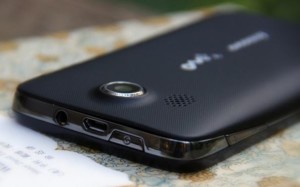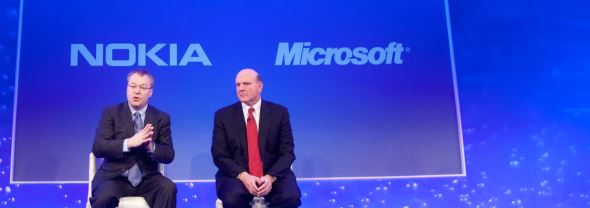Best Posts: Summer Round-Up
 It’s hard (and sad) to believe it, but summer is already over. It was a busy belter for sure, and we got some great weather but the days are already getting longer and the kids are already back at school. Before you know it, the shops will be playing carols and you’ll be thinking about making the first batch of mulled wine of the year. But before that happens, let’s take a while to look back at the best mobile stories from the summer.
It’s hard (and sad) to believe it, but summer is already over. It was a busy belter for sure, and we got some great weather but the days are already getting longer and the kids are already back at school. Before you know it, the shops will be playing carols and you’ll be thinking about making the first batch of mulled wine of the year. But before that happens, let’s take a while to look back at the best mobile stories from the summer.
We’ve had some great headlines over the last couple of months. Not least the various leaks about Apple’s new iPhone 5S. While we are fairly certain about the name, very little else is known for sure until secretive Apple makes an official announcement. There are strong hints there will finally be a 128GB version as well as a new gold-coloured option though. Stay tuned as we’re expected to hear much more tomorrow.
There were also lots of juicy rumours about new Android phones and tablets such as the Motorola Moto X, the Nexus 7, Nexus 10 and and the stunning Samsung Galaxy Note III with its massive screen. Full official details are due any day now. But one of the most intriguing things about having a large screen is the possibility for gargantuan 4K screens at an unbelievable 640 ppi resolution as they are now supported in the latest version of Android Jelly Bean 4.3. Android as a digital ecosystem is also doing incredibly well as it has been reported that their sales account for almost 80% of all smartphones these days.
In other news, we saw the launch of the first phone running the shiny new Firefox OS as well as plenty of new devices running Windows Phone OS. BlackBerry is still on the decline, however.
But what else has been happening? Here’s a round-up of the five very best articles and news stories from the Mobile Network Comparison blog.
Sainsbury’s and ethical business
 At the beginning of the month, we reported on a new virtual mobile network being launched by Sainsbury’s. However, after a while, it became clear that there was more to it than it first seemed. The choice of CEO Justin King to use Vodafone as their network provider deserves some scrutiny as he’d repeatedly made statements saying that businesses should pay a fair amount of tax back to the state and not try to avoid their ethical responsibilities.
At the beginning of the month, we reported on a new virtual mobile network being launched by Sainsbury’s. However, after a while, it became clear that there was more to it than it first seemed. The choice of CEO Justin King to use Vodafone as their network provider deserves some scrutiny as he’d repeatedly made statements saying that businesses should pay a fair amount of tax back to the state and not try to avoid their ethical responsibilities.
However, Vodafone are well known in the UK for their complicated arrangements for evading tax payments. Despite taking in over £40 billion in revenue and paying out billions to shareholders, Vodafone didn’t pay any tax at all last year. Check out our full story for details of their tax records and the issues with Justin King going into business with them despite his strong claims about the rights and wrongs of businesses’ tax affairs.
Revealed – the great mobile tax con
 Continuing our reporting into UK networks’ tax avoidance, we wrote a detailed article covering exactly how much mobile operators are paying in tax. This article revealed shocking facts such as the fact that foreign-owned EE has 25 million UK customers but spends almost 150% on paying shareholders than the total 2013 budget for all NHS A&E departments in the country.
Continuing our reporting into UK networks’ tax avoidance, we wrote a detailed article covering exactly how much mobile operators are paying in tax. This article revealed shocking facts such as the fact that foreign-owned EE has 25 million UK customers but spends almost 150% on paying shareholders than the total 2013 budget for all NHS A&E departments in the country.
For more details on how much money mobile companies are making, how much they are paying their executives and how much tax they are contributing and paying back to society, you can’t miss this post.
Lenovo A789 review
 This summer we also published our first ever mobile handset review. The Lenovo A789 is typical of a Chinese phone that’s not available directly on the UK market – much cheaper than the norm but packing an impressive specs list and a unique feature set including great ideas such as dual-SIM capability and a built-in FM transmitter.
This summer we also published our first ever mobile handset review. The Lenovo A789 is typical of a Chinese phone that’s not available directly on the UK market – much cheaper than the norm but packing an impressive specs list and a unique feature set including great ideas such as dual-SIM capability and a built-in FM transmitter.
We got our hands on one and played around with it for hours and hours to work out its best pros and cons. Our full review includes a detailed critique of the hardware, specs, design and operating system of this great value phone.
iPhone 5S to have fingerprint scanner
 This post looked at one of the most interesting leaked features of the new iPhone 5C – a fingerprint scanner built into the touchscreen. We looked into industry claims that using fingerprint scanners on phones will change the way we use technology forever. Our analysis not only went into detail about the likelihood of this being confirmed for the new iPhone but also unravel some misconceptions and truths about privacy and security on iOS.
This post looked at one of the most interesting leaked features of the new iPhone 5C – a fingerprint scanner built into the touchscreen. We looked into industry claims that using fingerprint scanners on phones will change the way we use technology forever. Our analysis not only went into detail about the likelihood of this being confirmed for the new iPhone but also unravel some misconceptions and truths about privacy and security on iOS.
PAYG showdown: 321 vs Giffgaff
 Finally, we wrote a massive 1,100 word post on Three Mobile’s groundbreaking new 321 tariff. This new deal slashes prices and offers what seems to be the UK’s best value PAYG price-plan with calls just 3p, texts coming in a 2p each and mobile data costing a cheap-as-chips 1p/MB.
Finally, we wrote a massive 1,100 word post on Three Mobile’s groundbreaking new 321 tariff. This new deal slashes prices and offers what seems to be the UK’s best value PAYG price-plan with calls just 3p, texts coming in a 2p each and mobile data costing a cheap-as-chips 1p/MB.
But is it really the best value option for you? This detailed price comparison post does what we do best and really delves into real world costs to see if there are any better ways to save money on your mobile. If you want the actual cheapest deal available, don’t miss this read.
We hoped you liked our look back at the summer’s mobile stories and went back to have a look at our best articles. Let us know your favourites and if you think there’s anything we missed out in the comments below 🙂







Recent Comments